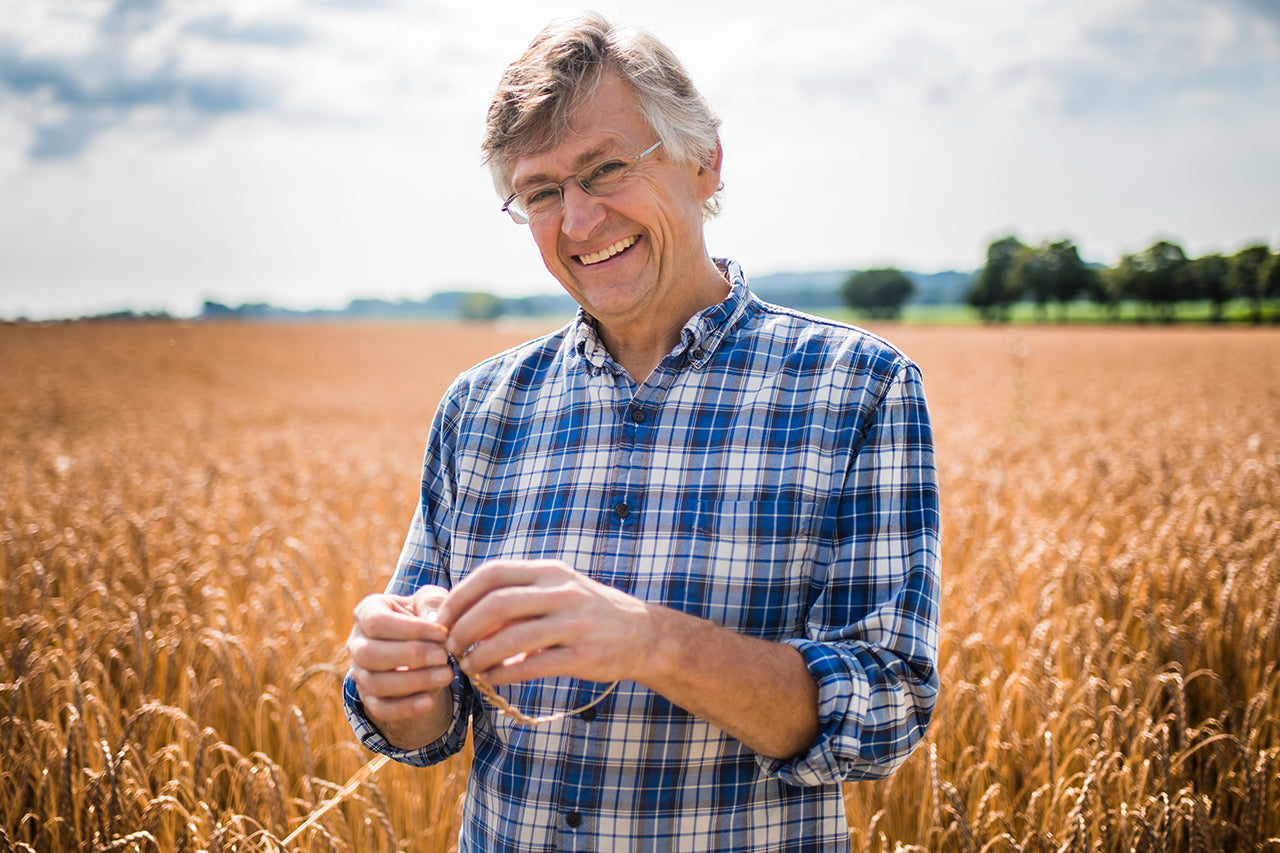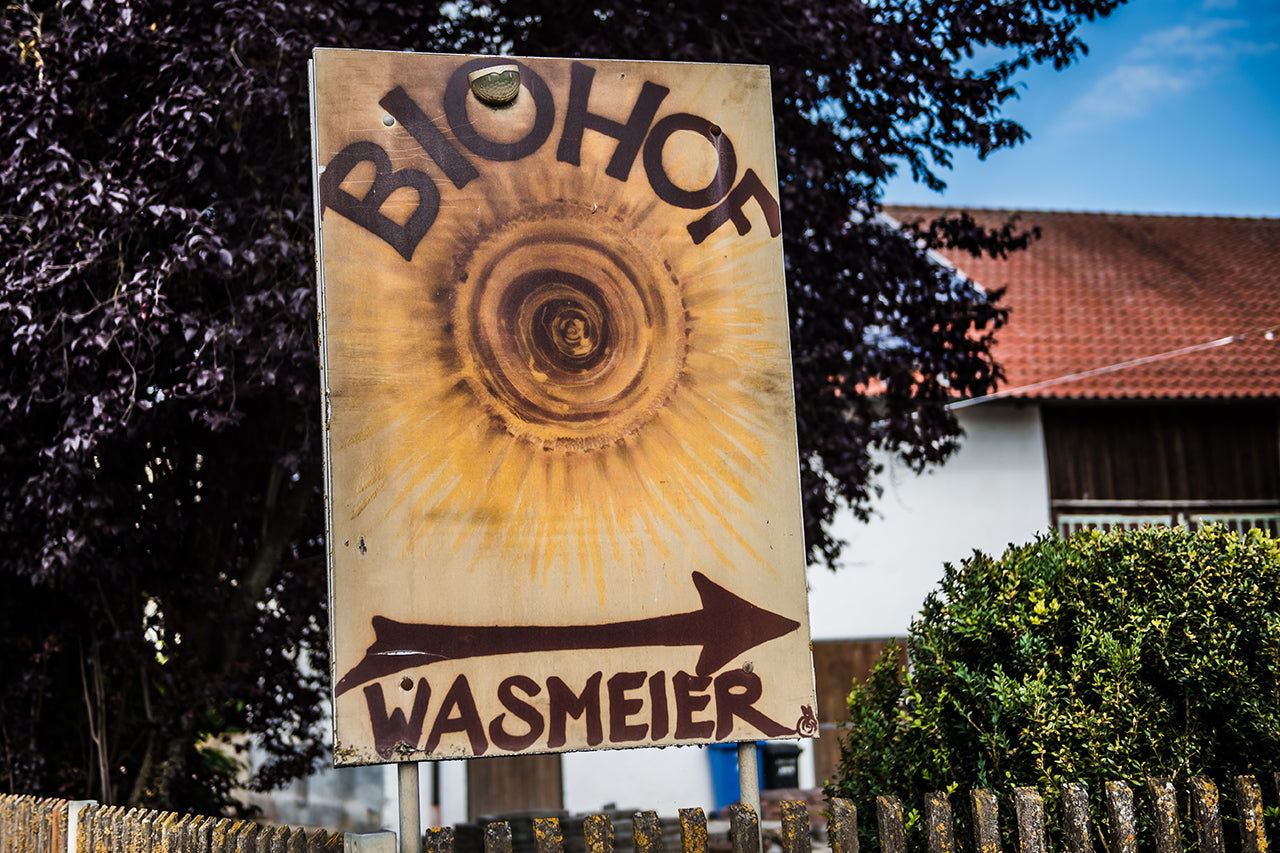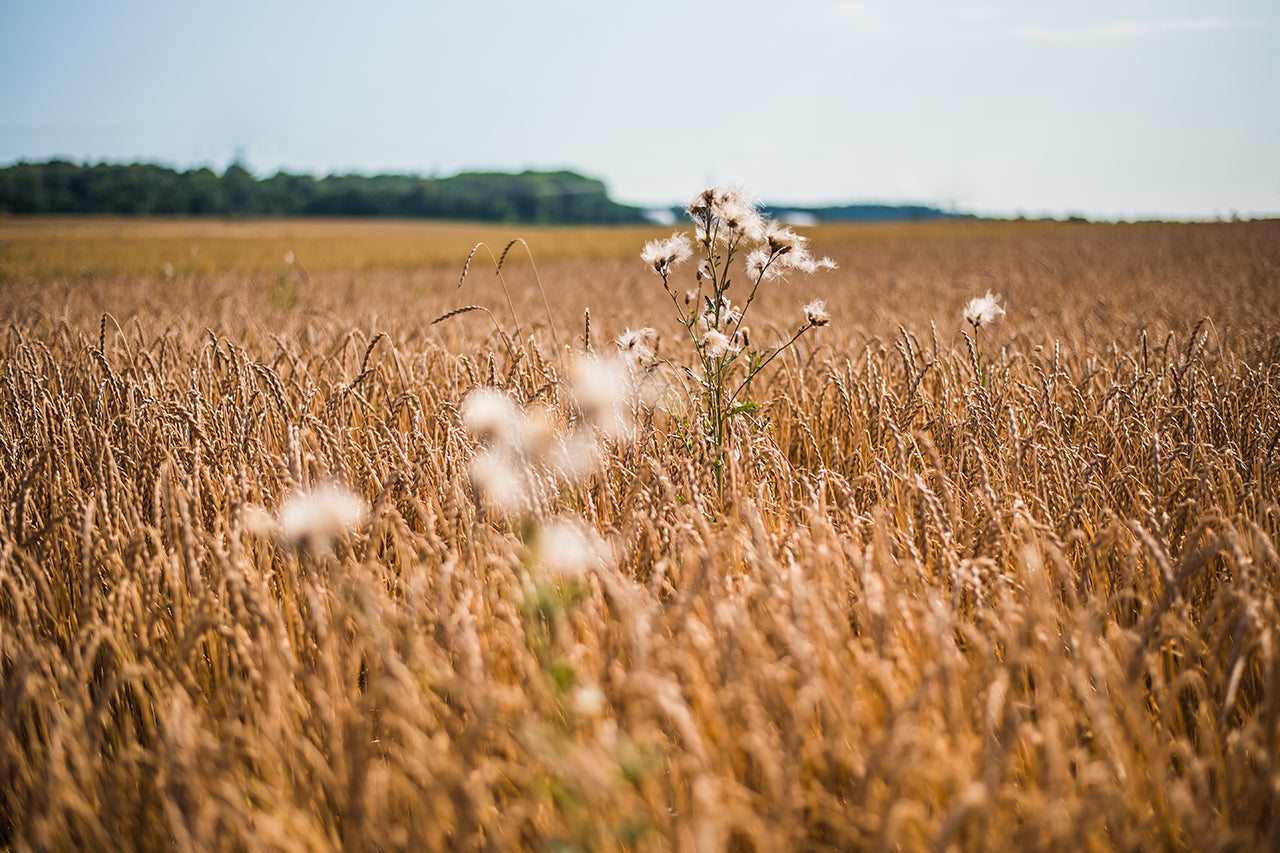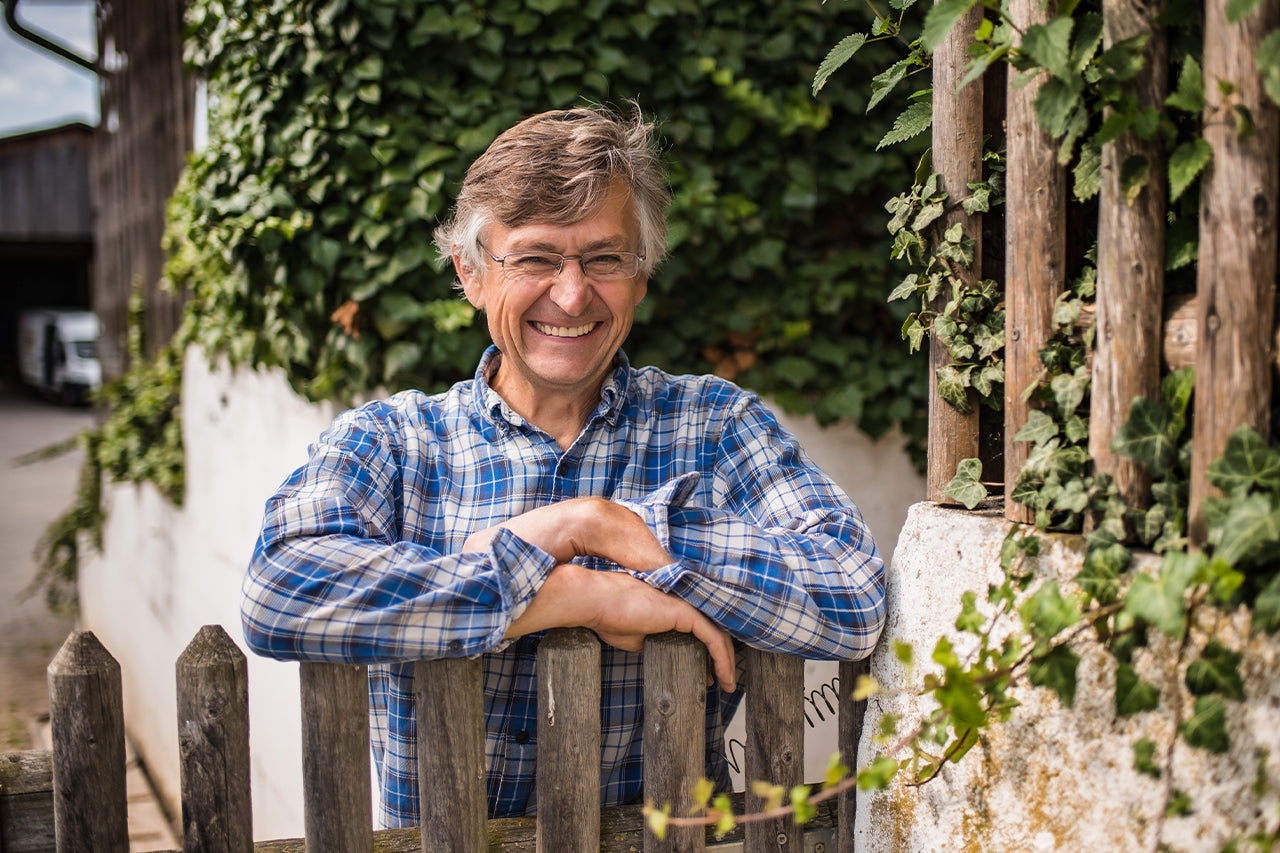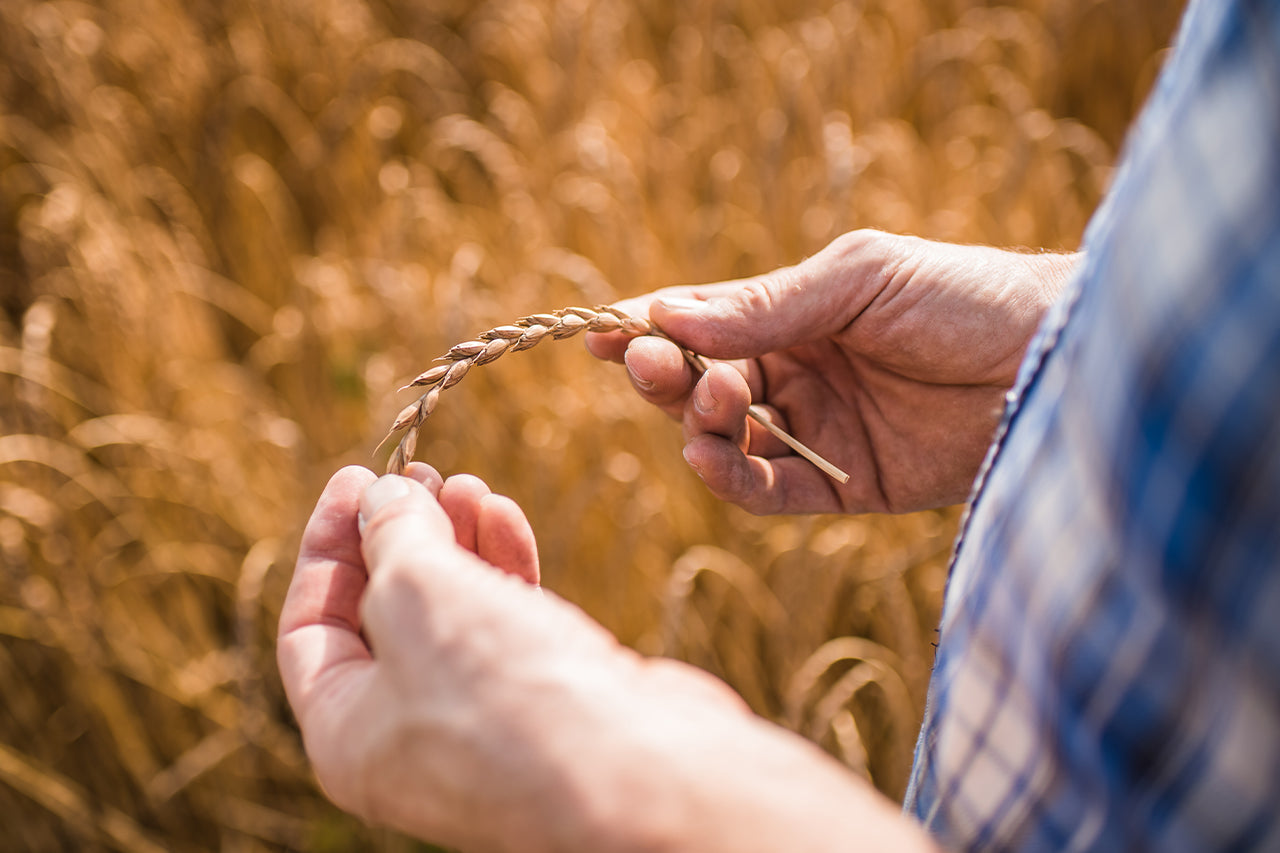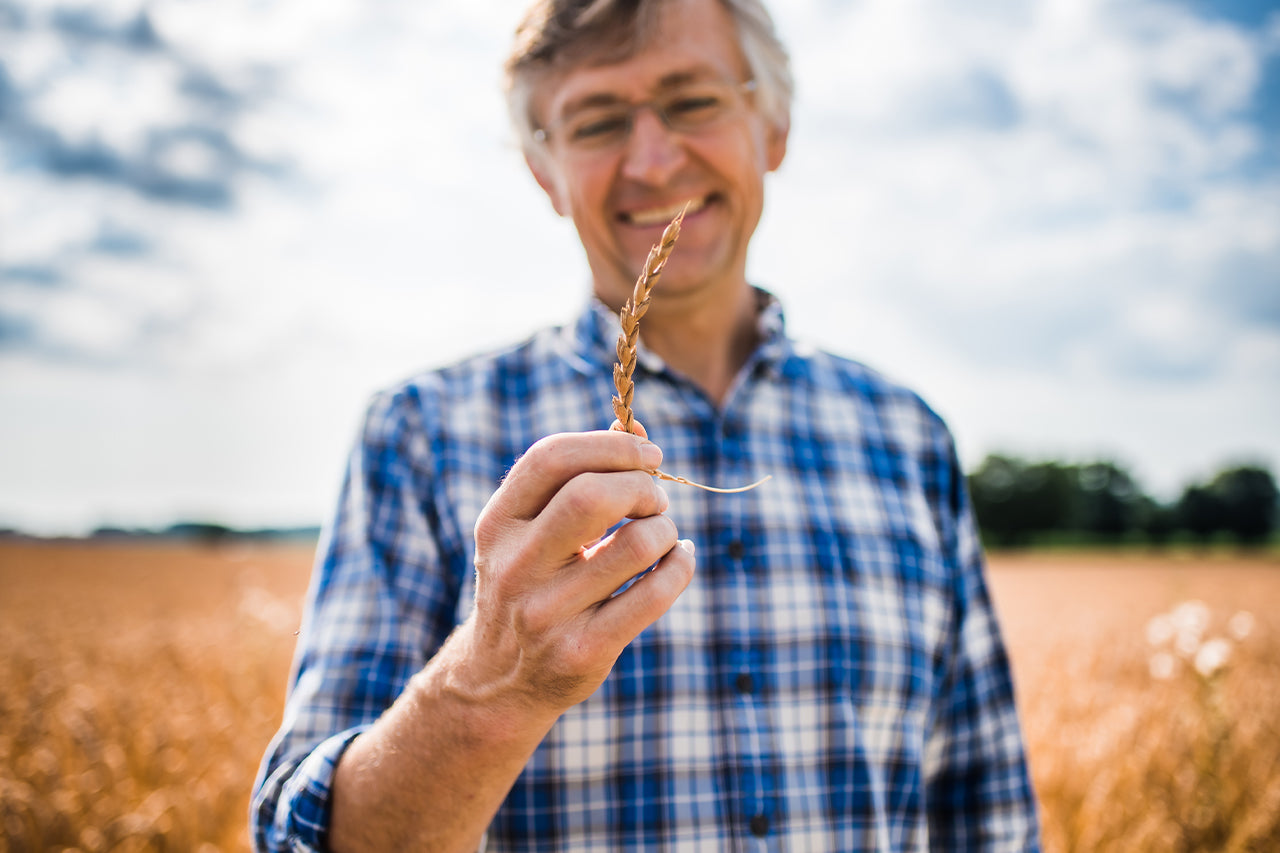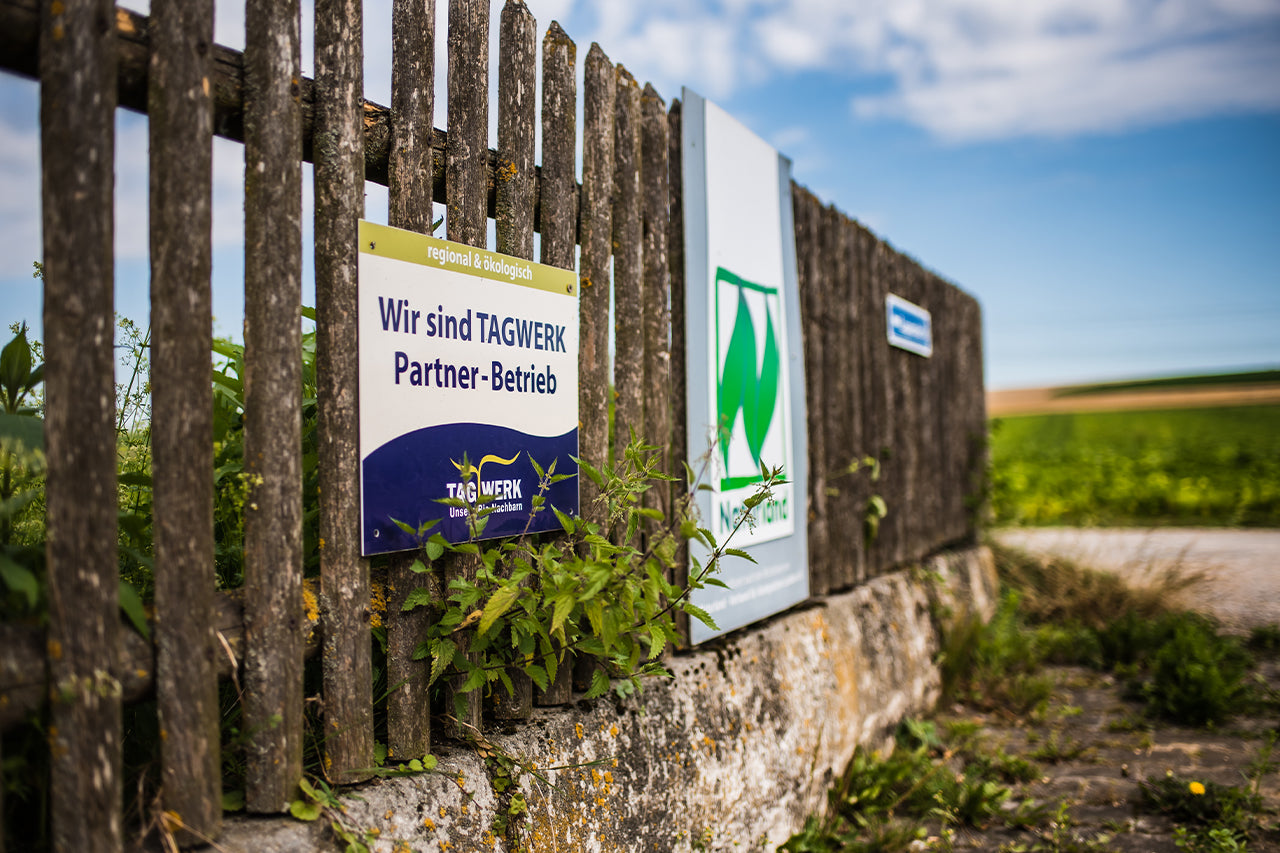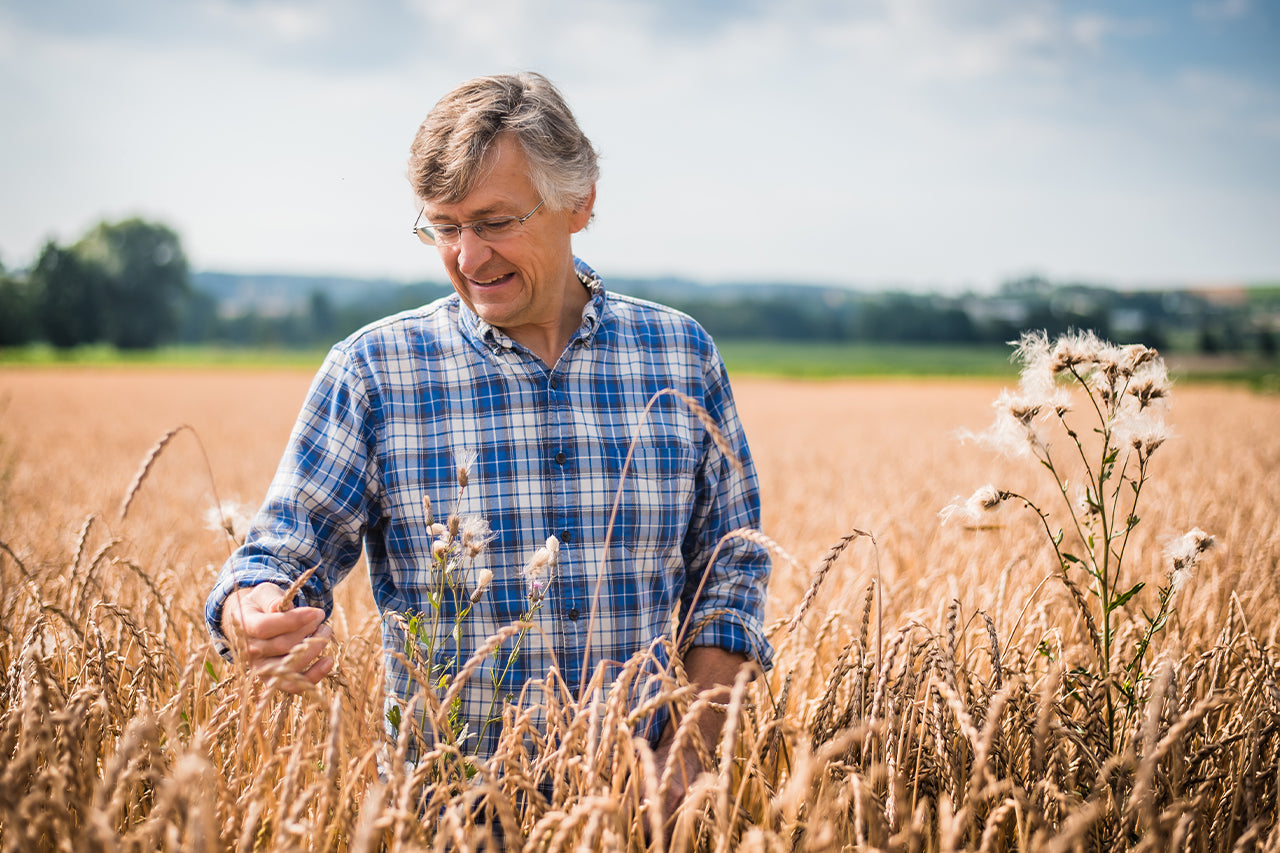The Buchner farm of the Wasmeier family has always been run without livestock as a pure arable farm as a main occupation. At work, Sepp Wasmeier is supported by his family and two temporary workers. For their special crop, the sugar beet, there are also around ten seasonal workers from Eastern Europe on the farm for six weeks. “The main activity is weeding the sugar beets. This activity begins around May 1st and ends around June 10th,” explains the Naturland farmer.
“Apart from sugar beet for a Swiss sugar factory, we also grow oats and spelt for Barnhouse, wheat for baking flour, soybeans for tofu production, field beans, peas and grain corn for animal feed. For several years there has been a feed/manure cooperation with an organic chicken farmer. That means we deliver feed to the Wiesbauer feed factory in Austria, our cooperation partner gets his feed for the chickens from this feed factory, and we spread the chicken manure back on our fields as fertilizer.”
Forests should become climate change-compatible
In addition to the approximately 150 hectares of arable land, the company also owns 23 hectares of forest. The family wants to convert the latter to be 'suitable for climate change'. "It's a bit like looking into a crystal ball. Decisions we made 8 years ago (planting firs, beeches, Douglas firs instead of spruces) now seem outdated due to the speed of climate change," explains Sepp, who completed his agricultural studies in 1987.
After graduating, he joined his parents' business, but was dissatisfied with the situation of producing food that nobody really appreciated. “Often there were also surpluses on the market, which were produced with the help of a great deal of chemicals and crude oil. That didn't make any sense to me. I have never regretted the decision to become an organic farmer in 1989 and I feel very self-determined in my work.”
“Knowing that my grain is processed into Krunchy at Barnhouse and that I also appreciate these products very much is only surpassed by classic direct marketing. It's just a great thing," he praises the delivery community.
Conservative farming at Sepp Wasmeier
Sepp farms very conservatively and only refrains from plowing the fields in exceptional cases. “I believe that without animal husbandry and the appropriate forage production, weed management will otherwise become a problem in the long term. Trials with AKRA or EM did not result in any obvious advantages for us and have been discontinued.”
The family is always working to further develop organic farming - both in arable farming and in pest control and disease control.
Sepp Wasmeier's NATURLAND farm in Eichendorf in Lower Bavaria is a good 60 km north-east of Barnhouse. His magnificent spelt field, which we see here in the photos, is about to be harvested. Due to the heavy rain recently, Sepp's oats have gone into storage more and more, as the "imbalance" in grain is called. Now he is hoping for persistently dry weather to avoid crop losses here. As consumers, we are used to groceries always being available on store shelves. However, we should always be aware of how important the weather conditions are for our farmers, their harvest and thus for our daily bread.


